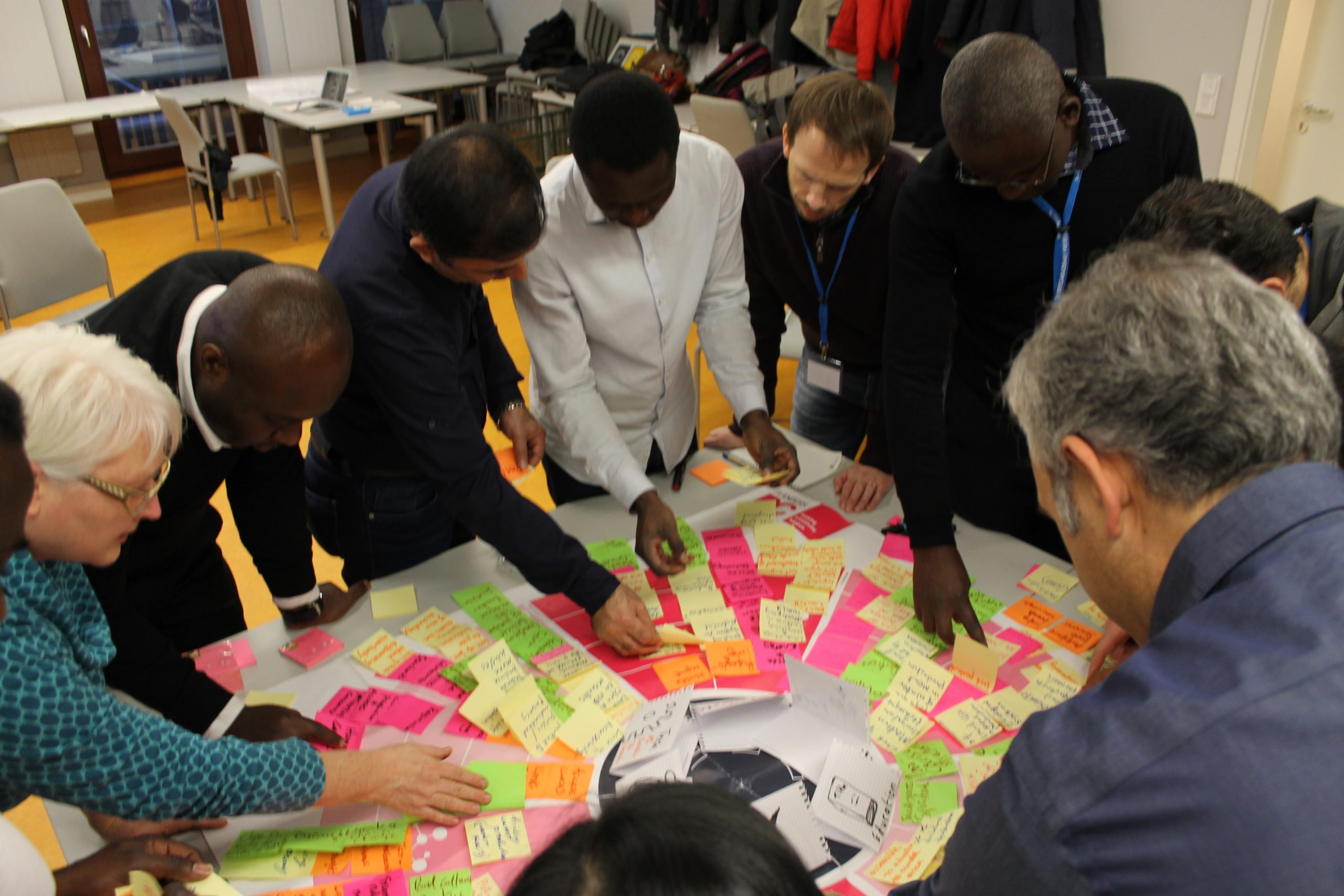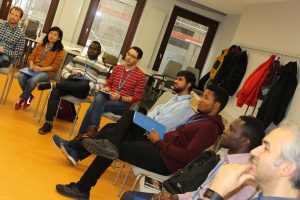
This 3 days’ challenge design sprint had the objective to build inspiring challenges along with PhD students from the Technical University Freiberg. These challenges will be at the core of the Empower program at Freiberg and will support leaders willing to introduce a positive impact on people and planet in their respective countries (Ukraine, Nigeria, Ghana, Vietnam, Palestine, India & Pakistan, Afghanistan, Kenya, Chile, Brazil etc). It is intended to serve as the introductory session to two years practice-oriented program through which the participants will be guided to identify a specific problem of interest to themselves and; acquire the necessary ‘hands-on’ and skills needed to design and implement projects that will focus on such problems; and other multi-skilled requirements important to create impact for better governance and realities in their home countries.
Outcomes

One of the major outcomes of the session is the acquisition of a methodological way of identifying the major problems facing an individual, group of persons or the world as a whole. It opened up the minds of the participants to the major problems facing the human race and the environment. Through the use of GPS brainstorming, the participants were able to narrow such problems to specific fields or arear of interests. The main challenges identified are within the following mega topics: Energy, Water, Food, Technology, Education and Waste. The specific challenges are listed below:
Energy:
- HMW2 help the Enugu Community is South-East Nigeria have access to the uninterrupted electricity supply for at least six months?
- HMW help rural Pakistan communities to urgently develop a system for producing sustainable, clean, cheap/affordable energy?
Water:
- HMW build a 50 km water pipeline to help increase access to clean water supply from the present 25% to 65% by 2020 in Mazari, Afghanistan.
Food:
- HMW increase crop production at a reduced cost by optimizing water availability to small-scale farmers in Palestine by 2020?
Education:
- HMW enhance access of poor children in rural Vietnam to quality education, with motivated teachers, supported by quality infrastructure by 2025?
Waste:
- HMW organize major stakeholders in India to embrace an environment-friendly method of packaging and reduce by at least 40% of the waste in South-East India within the next one year?
- HMW help introduce an easy to access internet software that can be used to sale or buy re-usable waste in South-East India and hence reduce waste production by at least 40% within the next 1 year.
Proposed Actions
- Organise into a community using existing tools such as Facebook, name a community manager among students to actually keep the torch burning.
- Actively prospect via the internet and other means what is already done to address major social and environmental challenges.
- Check assumptions: Challenges produced during this sprint came out of our brains. In order for these challenges to be effective and deliver expected outcomes, there need to be major ground checks. This means direct interactions with associations and communities that may suffer from these problems. Otherwise, we might be trying to solve a problem nobody really cares about, or that is already been addressed by existing organizations.